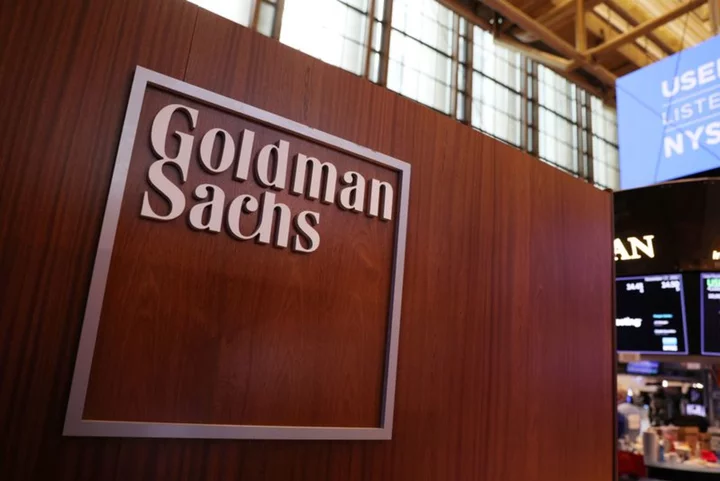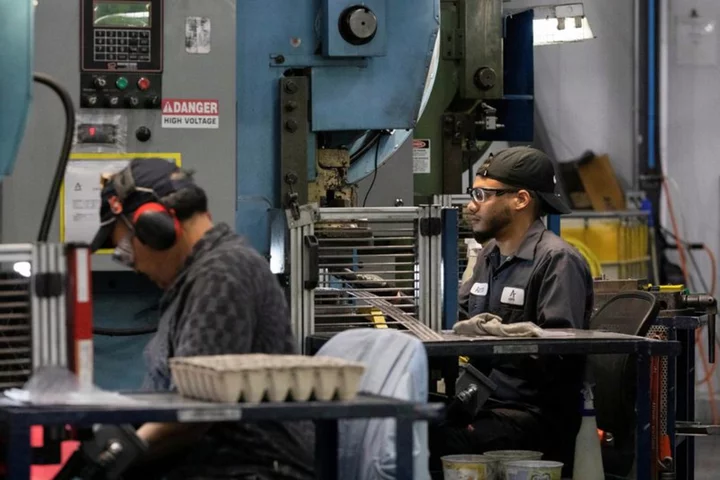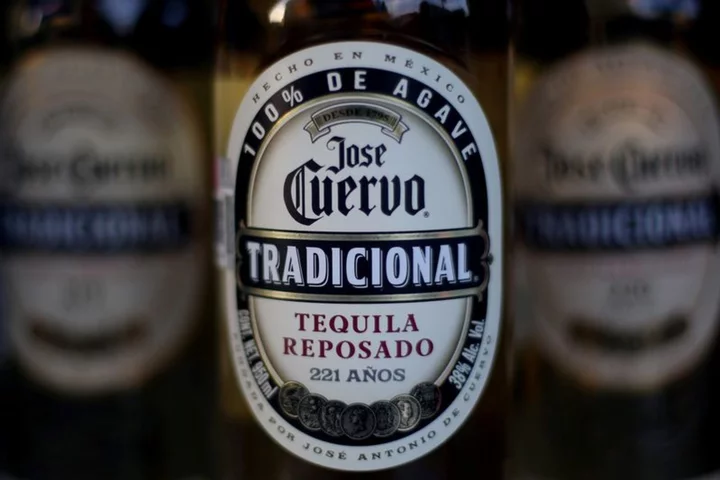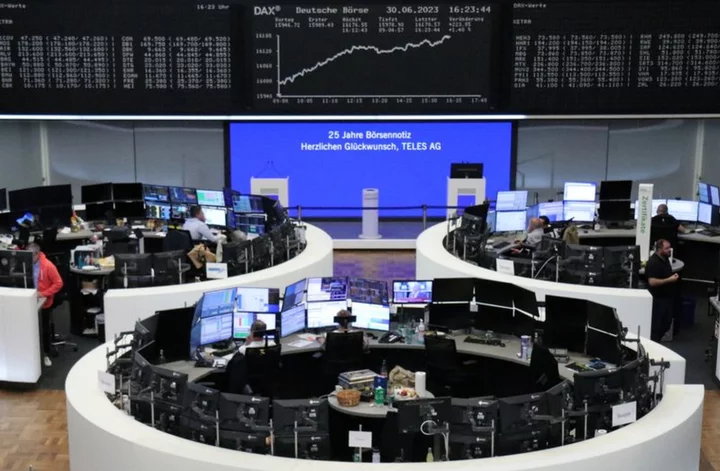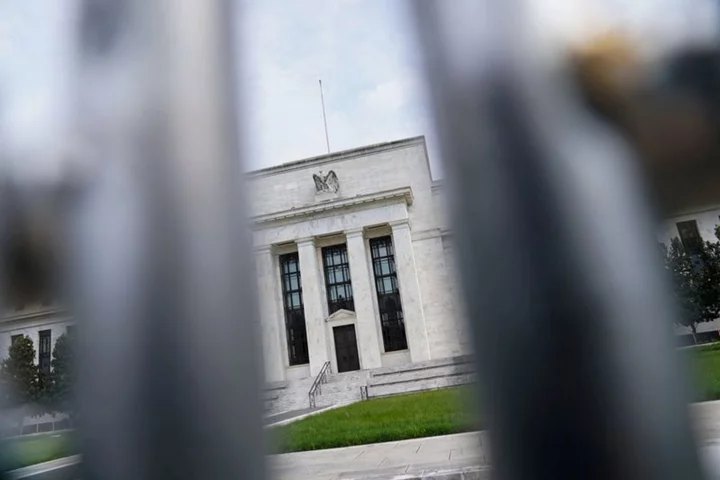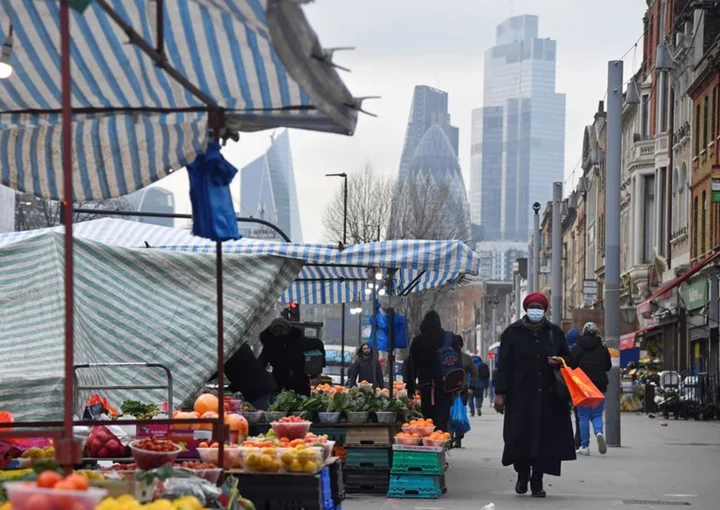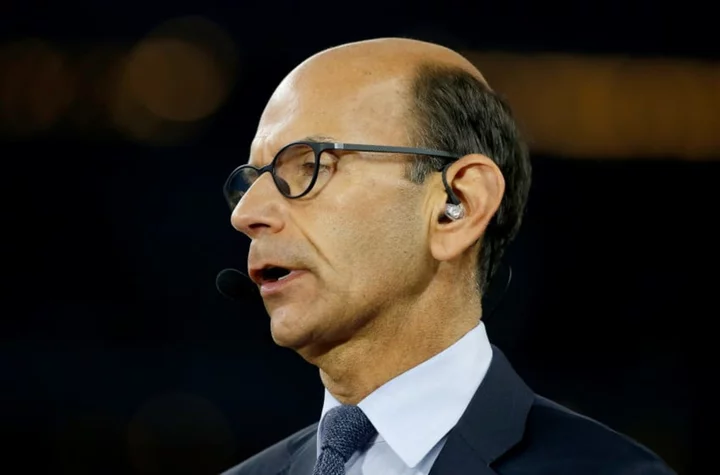By Saeed Azhar and Niket Nishant
NEW YORK (Reuters) -Goldman Sachs' profit dropped 60% in the second quarter, missing Wall Street forecasts, as its retreat from consumer businesses and declining investment values reduced its earnings by $1.4 billion.
The results were the worst for the Wall Street giant since the second quarter of 2020, when it took writedowns over corruption scandal linked to Malaysian state fund 1MDB.
Goldman took a writedown of $504 million tied to its GreenSky business, which facilitates home improvement loans to consumers, and $485 million related to its real estate investments.
Shares dipped 0.7% in early trading.
The bank also took $615 million in credit losses including writedowns related to its consumer loans and business.
"This quarter reflects continued strategic execution of our goals," CEO David Solomon said in a statement. "Global banking & markets delivered solid returns in an environment with cyclically low activity," he said, citing the bank's top ranking in M&A league tables for completed deals.
Earnings fell 60% to $3.08 per share for the three months ended June 30, compared with or $7.73 per share, a year earlier, the bank reported on Wednesday. Analysts had expected a profit of $3.18 per share, according to Refinitiv data.
Net earnings dropped 62% to $1.07 billion in the second quarter versus $2.79 billion a year earlier.
"They definitely missed the target and that seems to be an outlier relative to virtually all the other major banks," said Randy Frederick, managing director of trading and derivatives at Charles Schwab.
Goldman agreed to acquire GreenSky for $2.2 billion in 2021 and later closed the deal at $1.7 billion.
Goldman's Marcus unit was also folded into its merged asset and wealth management arm last year, as the investment bank began pulling back from retail banking.
The sale of "substantially all of the remaining" Marcus loans portfolio also resulted in a gain of $100 million for Goldman.
Goldman's asset and wealth management unit brought in 4% less revenue compared to last year, hurt by losses from real estate investments, although it recorded record fees and assets under supervision.
The bank said it plans to sell in three to five years about half of commercial real estate-related investments on its asset management's alternative arm.
The results contrast with major Wall Street rivals whose earnings beat expectations, including JPMorgan Chase and Morgan Stanley. Executives cited a resilient economy, but cautioned that high borrowing costs will begin to weigh on loan demand later this year.
Goldman's investment banking fees for the quarter fell 20% to $1.43 billion. Trading revenue for fixed income, currency and commodities fell 26%, while equities rose 1%.
The Federal Reserve's aggressive interest-rate increases to tame inflation have prompted executives to predict a slowdown in the second half of the year.
The uncertain outlook has weighed on mergers and acquisitions, while a flurry of initial public offerings have stoked some optimism about a nascent recovery.
On Tuesday, Goldman's peer Morgan Stanley said its investment banking revenue was in line with last year, but the trading business had weakened.
Analysts are optimistic that an ongoing recovery in stock markets will encourage dealmaking and prompt more IPO hopefuls to list their shares in the coming months.
However, uncertainty about the trajectory of the economy continues to be a hurdle with global mergers and acquisitions activity falling 36% from last year in the second quarter.
Goldman Sachs has laid off thousands of employees to curb costs and soften the hit from a dealmaking slump. More employees can expect to be laid off this year if revenue does not bounce back, a sources told Reuters earlier.
The bank's headcount fell 2% from the first quarter to 44,600.
(Reporting by Niket Nishant and Noor Zainab Hussain in Bengaluru and Saeed Azhar in New York; Additional reporting by Johann M Cherian and Bansari Mayur Kamdar; Editing by Arun Koyyur and Nick Zieminski)

